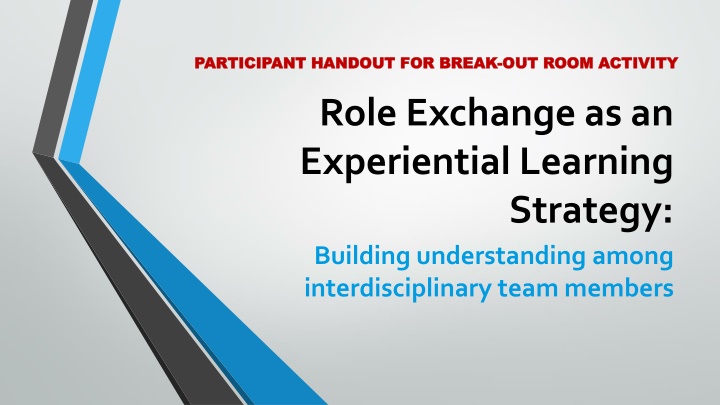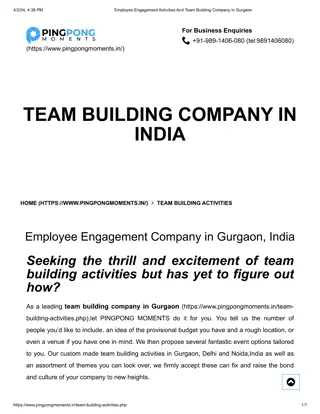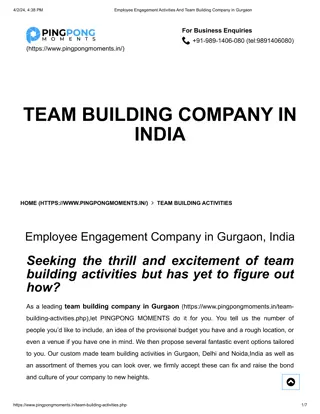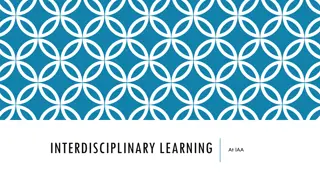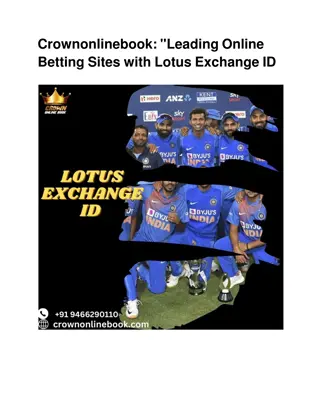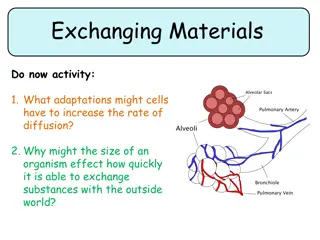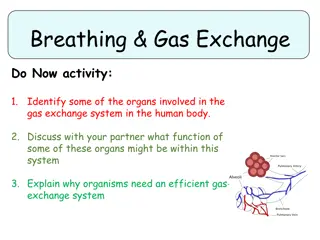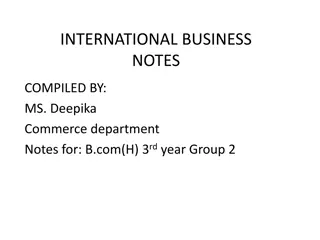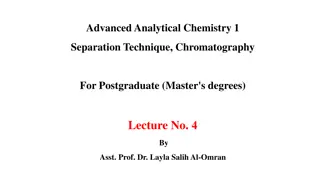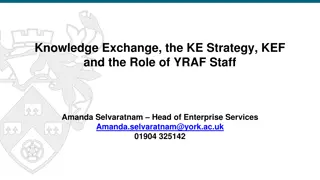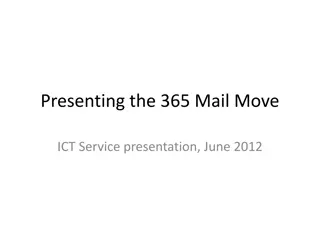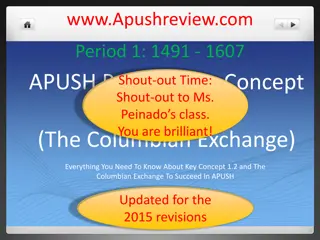Role Exchange for Interdisciplinary Team Building
Explore the experiential learning strategy of role exchange to foster understanding among interdisciplinary team members. Engage in scenario-based role-play activities, followed by discussions on the experience, feelings, perceptions, and learnings from assuming different roles within the team. Enhance empathy, communication, and collaboration skills through this interactive exercise.
Uploaded on Sep 18, 2024 | 0 Views
Download Presentation

Please find below an Image/Link to download the presentation.
The content on the website is provided AS IS for your information and personal use only. It may not be sold, licensed, or shared on other websites without obtaining consent from the author.If you encounter any issues during the download, it is possible that the publisher has removed the file from their server.
You are allowed to download the files provided on this website for personal or commercial use, subject to the condition that they are used lawfully. All files are the property of their respective owners.
The content on the website is provided AS IS for your information and personal use only. It may not be sold, licensed, or shared on other websites without obtaining consent from the author.
E N D
Presentation Transcript
PARTICIPANT HANDOUT FOR BREAK PARTICIPANT HANDOUT FOR BREAK- -OUT ROOM ACTIVITY OUT ROOM ACTIVITY Role Exchange as an Experiential Learning Strategy: Building understanding among interdisciplinary team members
Scenario 2: Twelve-Step Meeting Break-out Group Discussion Andrea, a peer worker, is thinking of going to a 12-step meeting with Ignacio, a peer with a substance use history. Andrea asks their supervisor, Felix, for input and permission. Role-play the conversation between Andrea and Felix in reverse roles, then follow the directions given for discussion and comments by group members. (See instructions on next slide and posted in chat). JW/JPE | SHARE! | 4.27.22
Role Exchange Instructions 12-minute break-out groups Select a role you do not typically hold; for example, peer support workers play the role of clinicians, and clinicians role-play peer support workers. Participants enact the situation for (5 Minutes) in the exchanged roles. After the role play, participants stay in role and discuss their experience how it felt, what was similar and different compared to their usual experience in their usual role (2 minutes). Role players then go out of role to their usual role; discussion occurs among the full group of what happened, why, with what outcomes, and reflections; what has been learned, what might be different in future, how to apply the learning going forward? (5 minutes). JW/JPE | SHARE! | 4.27.22
Observations and Discussion What was it like to be in a different role than usual? How did you feel about what happened? When you return to your usual role, does anything feel different in how you perceive the person whose role you played? Have you learned anything new as a result of doing the role exchange? JW/JPE | SHARE! | 4.27.22
